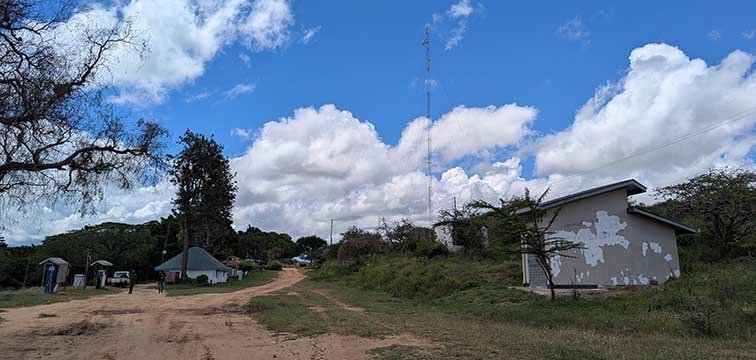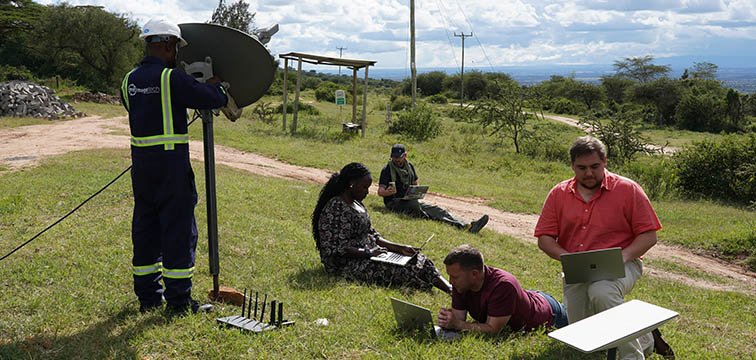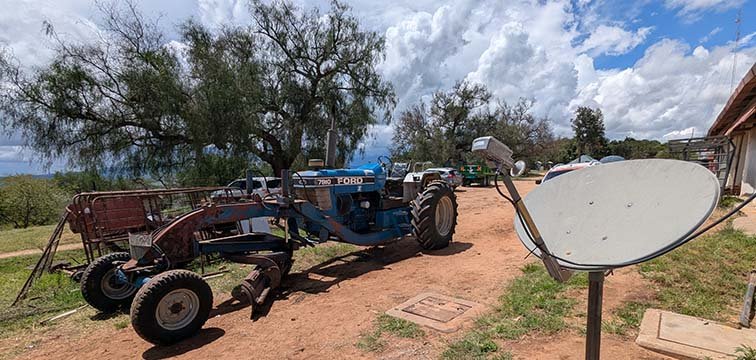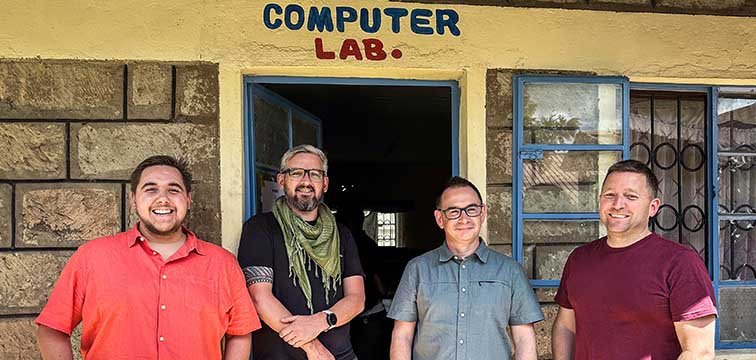How Jisc and KENET brought eduroam to rural Kenya using satellite internet
We partnered with Kenya Education Network Trust (KENET) to test eduroam in rural Kenya, showing how NREN collaboration can deliver secure connectivity to remote research sites.
Global collaboration: launching eduroam in rural Africa
Supported by the GEANT Twinning Programme, this project brought together Jisc, as the operator of the UK’s National Research and Education Network (NREN), and Kenya Education Network Trust (KENET) to test how eduroam could be deployed in a remote African setting using satellite internet.
Why Kenya was chosen for eduroam deployment

Kenya is a hub of innovation in digital infrastructure across East Africa, with a growing number of research and education institutions. However, many rural campuses still face connectivity challenges. This made it an ideal location to test how satellite internet could support extending eduroam where terrestrial broadband isn’t viable.
Testing eduroam with satellite and mobile data
Initial testing took place at KENET’s office in Nairobi. Due to local licensing restrictions, we used Cisco hardware instead of our usual Ericsson devices. Despite a few technical challenges, including network conflicts and cloud configuration issues, we successfully resolved them through systematic troubleshooting.

After a few days we completed our initial tests using a variety of backhaul connection types:
- A local wired network via KENET
- Mobile data using both the Safaricom and Airtel networks
- Satellite internet via Starlink
These results gave us confidence in the setup’s flexibility and resilience. We were ready to take the next step – testing in a truly remote location.
eduroam deployment at Kapiti Research Station and Wildlife Conservancy
We then deployed the solution at the Kapiti Research Station and Wildlife Conservancy, 60km outside Nairobi. The site hosts researchers from around the world but lacked eduroam access. With temporary approval to use Ericsson hardware, we installed the system and began testing.
Connectivity test results: Satellite vs mobile data

Backhaul service:
Satellite internet service (Starlink)
- 147 download speed (Mbps)
- 24 upload speed (Mbps)
- 37 latency (loaded) (ms)
- 25 latency (unloaded) (ms)
Mobile data (Safaricom)
- 147 download speed (Mbps)
- 9 upload speed (Mbps)
- 206 latency (loaded) (ms)
- 41 latency (unloaded) (ms)
Tests were conducted on 13 May 2025 using via Jisc’s extending eduroam (Ericsson) hardware, and KENET’s RADIUS nproxy servers. Speed tests used fast.com, connecting to servers in Nairobi for the Satellite internet service (Starlink) tests and Thika for the Mobile data (Safaricom) tests. Eutelsat testing was planned but not possible due to signal issues. Mobile data availability at Kapiti was better than expected, likely due to elevation and weather conditions.
Real-world benefits of eduroam in remote research sites
We shared our findings at the GÉANT TNC conference in a lightning talk where the project generated strong interest from other NRENs. It demonstrated how eduroam can be extended to support researchers in remote locations.
Extending eduroam use cases
This project has revealed several practical scenarios where extending eduroam deployment with satellite internet service could make a difference:
- Permanent sites: support remote campuses with long-term connectivity needs
- Short-term outages: provide backup during fibre breaks or service delays
- Mobile research: enables travelling researchers to deploy eduroam using portable, solar-powered kits
Key takeaways from eduroam deployment in Kenya

- Check local regulations: hardware and service availability vary by country
- Flexible deployment: eduroam can be deployed anywhere with power (power mains, battery, solar) and a clear sky
- Satellite internet is evolving fast: providers like Amazon, Eutelsat, SpaceX are expanding coverage and improving performance
- Understand data caps: usage limit may affect research needs; direct peering could help
- Time is a barrier: funding for staff time is often the biggest challenge in international collaboration, but when that’s overcome, the results can be extraordinary
- Scalable solutions: deployments can be led by NRENs or institutions, with support from national RADIUS proxy infrastructure
Our global role as an NREN
This project highlights our role as the UK’s NREN and our commitment to supporting global research and education. By working with partners like KENET, we’re helping to extend eduroam to where it’s needed most, ensuring researchers and students stay connected, wherever they are.
Interested in eduroam?
Contact your relationship manager or explore the GÉANT Twinning Programme to get started.